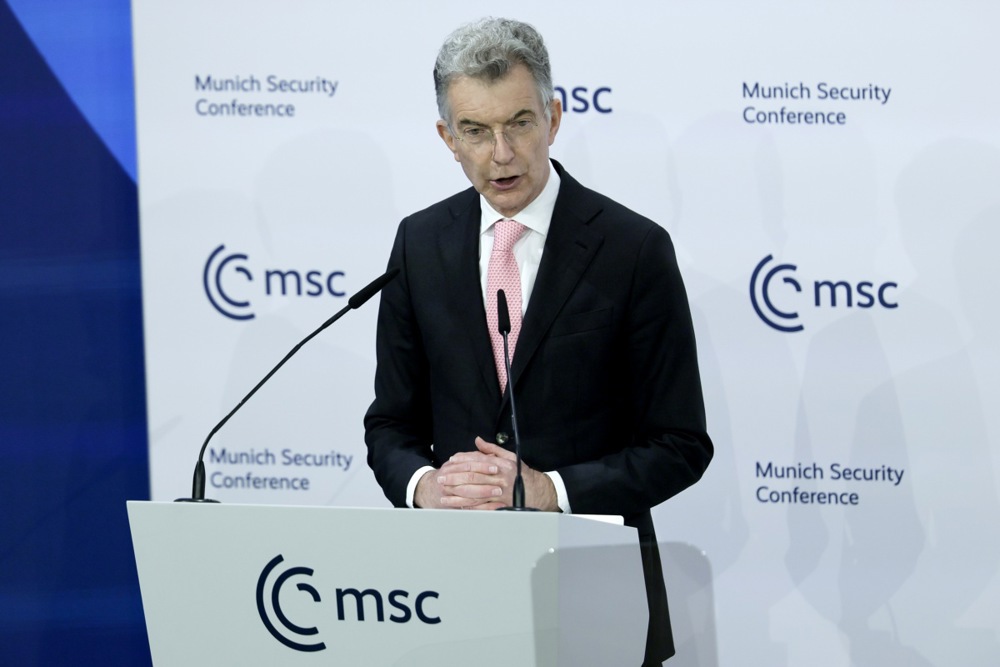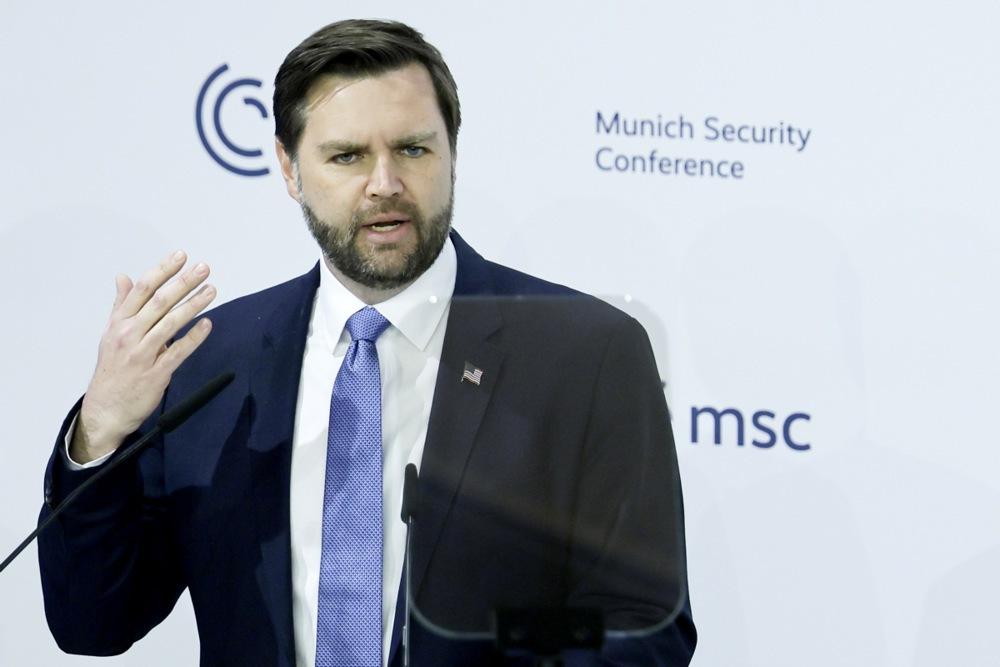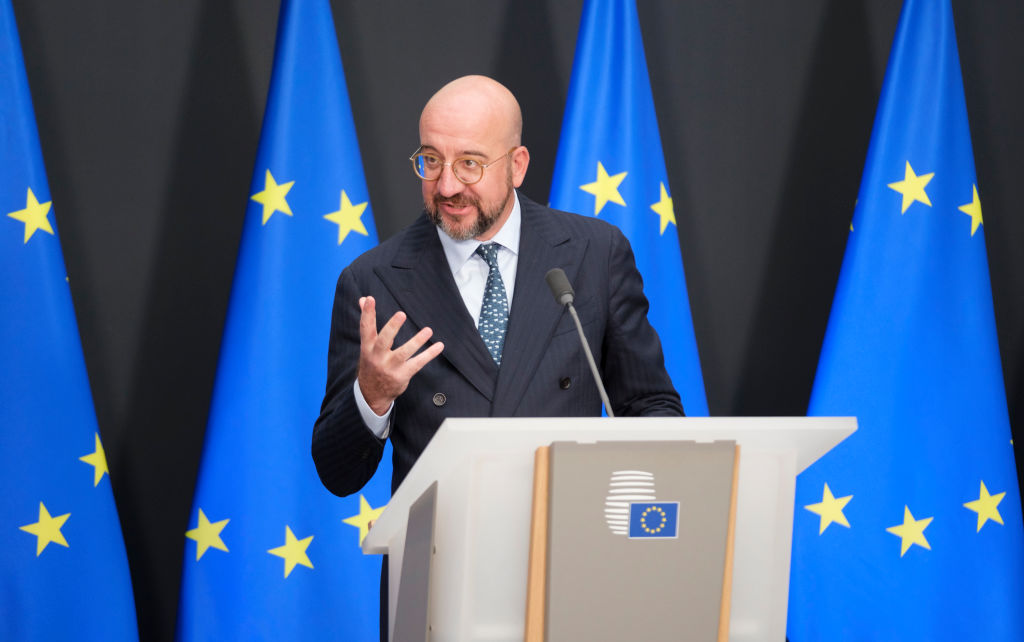US Vice President JD Vance says he “loves” Europe but European governments must be more responsive voters on immigration.
He was speaking to the British online news outlet UnHerd on April 14, shortly after US President Donald Trump rocked international trade chiefs with new tariff policies.
“I’ve said repeatedly that I think that you can’t separate American culture from European culture. We’re very much a product of philosophies, theologies, and of course the migration patterns that came out of Europe that launched the United States of America,” he said.
He added, though, that he was worried European leaders seemed not to see how things stood regarding immigration and security.
“We’re very frustrated — ‘we’ meaning me, the [US] President[Donald Trump], certainly the entire Trump administration — that European populations keep on crying out for more sensible economic and migration policies, and the leaders of Europe keep on going through these elections and keep on offering the European peoples the opposite of what they seem to have voted for.”
Vance said: “The entire democratic project of the West falls apart when the people keep on asking for less migration, and they keep on being rewarded by their leaders with more migration.”
He was also highly critical of how he felt Europe handled its security.
“The reality is — it’s blunt to say it, but it’s also true — that Europe’s entire security infrastructure, for my entire life, has been subsidised by the United States of America,” he stated.
Vance said 25 years ago, Europe did have “vibrant militaries” capable of defending their own homelands.
Now, Vance claimed, “most European nations don’t have militaries that can provide for their reasonable defence”.
Notwithstanding a few exceptions such as the UK, France and Poland, “European leaders have radically underinvested in security and that has to change,” he said.
Vance recalled the late former president of France Charles de Gaulle, who said he “loved the United States of America, but [he] recognised what I certainly recognise, that it’s not in Europe’s interest, and it’s not in America’s interest, for Europe to be a permanent security vassal of the United States”.
“I don’t think that Europe being more independent is bad for the United States — it’s good for the United States. Just going back through history, I think — frankly — the British and the French were certainly right in their disagreements with Eisenhower about the Suez Canal,” Vance added.
He also said he thought “a lot of European nations were right about our invasion of Iraq”.
“And frankly, if the Europeans had been a little more independent, and a little more willing to stand up, then maybe we could have saved the entire world from the strategic disaster that was the American-led invasion of Iraq.
“I don’t want the Europeans to just do whatever the Americans tell them to do. I don’t think it’s in their interest and I don’t think it’s in our interests, either,” the US vice-president said.
Regarding Ukrainian President Volodymyr Zelensky, Vance said he had repeatedly condemned Moscow’s actions since 2022 but tried to recognise the strategic objectives of both Ukraine and Russia.
“That doesn’t mean you morally support the Russian cause, or that you support the full-scale invasion, but you do have to try to understand what are their strategic red lines,” he added.
Vance said it was “sort of absurd” for Zelensky to accuse the US Government of siding with Russia, adding that the US “is currently keeping his entire government and war effort together”.
On trade, he said the US administration was working on deals with the UK Government and other European States, adding: “But there, the climb might be steeper”.
He said the US had “a much more reciprocal relationship with the UK than with Germany”.
“While we love the Germans, they are heavily dependent on exporting to the United States but are pretty tough on a lot of American businesses that would like to export into Germany.”
He indicated he wanted more “fairness” regarding trade relations.
“And again, we very much see Europe as our ally. We just want it to be an alliance where Europeans are a little more independent and our security and trade relationships are going reflect that.”
The main goal, Vance said, was to achieve lower trade deficits across the board, while acknowledging that it was necessary to import products the US could not produce.
But, he stressed, “large and persistent trade deficits across product categories, with the gross majority of countries really using the United States [home market] to absorb their surplus exports” were seen as bad for US manufacturers and workers.
COMMENT: JD Vance is not going to take lectures from leaders of European states that have lived comfortably within the American imperium for the past 80 years. No country in Europe embodies this parasitism as much as Ireland, writes Kevin Myers. https://t.co/LTQ28bYMLe
— Brussels Signal (@brusselssignal) February 18, 2025





